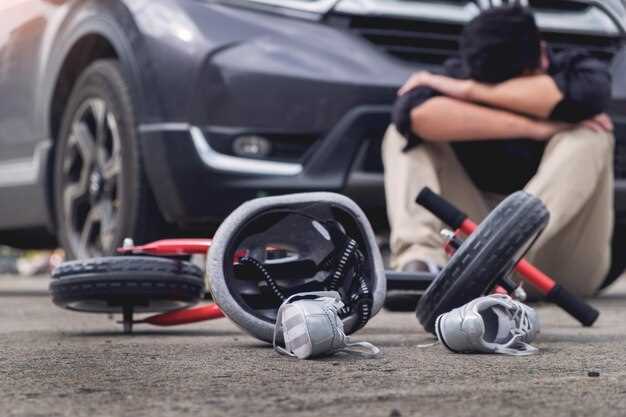
Brake failure is a critical issue that can lead to dangerous situations on the road. Understanding the causes of brake failure is essential for vehicle owners, as preventive measures can significantly reduce the risk. Regular maintenance and timely repairs are vital components in ensuring that your braking system functions optimally.
One of the most common causes of brake failure is the degradation of brake fluid due to moisture contamination. Over time, brake fluid absorbs water, which can decrease its boiling point and compromise the hydraulic system’s effectiveness. Additionally, worn-out brake pads can lead to increased friction, resulting in overheating and eventual failure. Regular checks and replacements can prevent these issues from escalating.
Another critical factor contributing to brake failure is neglecting regular inspections. Failing to monitor the condition of brake components can lead to unexpected breakdowns and potentially life-threatening situations. Practicing proactive maintenance, such as checking brake lines for leaks and ensuring that all components are in good condition, can help drivers avoid the serious consequences of brake system failures.
By recognizing these risks and implementing preventive strategies, drivers can maintain their vehicle’s braking system and enhance overall safety. Taking the time to repair minor issues before they evolve into major failures can save lives and prevent costly accidents.
Common Mechanical Issues Leading to Brake Failure

Brake systems rely on a series of mechanical components to function effectively; any failure in these parts can lead to serious safety hazards. Understanding common mechanical issues is crucial for timely repair and prevention of brake failure.
One of the most prevalent issues is worn brake pads. Over time, brake pads can degrade due to friction, leading to insufficient braking power. Ignoring the need for replacement can result in complete failure, causing damage to rotors and other components.
Leaking brake fluid is another critical concern. The brake system operates under hydraulic pressure, and any loss of brake fluid can drastically reduce braking efficiency. Leaks may originate from worn brake lines or deteriorated seals, necessitating immediate attention to avoid failure.
The brake rotor can also contribute to failure if it becomes warped or damaged. Warped rotors can cause vibrations and uneven braking, leading to increased wear on pads and potentially complete system failure if not repaired.
Another factor is the condition of the brake calipers. If calipers seize or fail to retract, they can create excessive heat and wear, resulting in brake fade or even total failure. Regular inspections can help catch these issues early.
Finally, improper installation of brake components can also lead to failure. Each part must be installed according to manufacturer specifications; otherwise, the entire system’s reliability can be compromised.
In conclusion, being aware of these mechanical issues can help vehicle owners take proactive measures. Regular maintenance and timely repair are essential for ensuring that the brake system remains functional and safe, ultimately preventing brake failure.
Signs of Brake Problems You Should Never Ignore
Brake issues can lead to severe safety hazards, making it essential to identify warning signs early. One of the most critical indicators is a grinding or squeaking noise when you engage the brakes. This sound often signifies worn brake pads, which require immediate repair to prevent further failure of the braking system.
Another sign to watch for is the feeling of the brake pedal. If you experience a spongy or soft pedal, it could indicate air in the brake lines or a brake fluid leak. Such conditions can severely compromise braking efficiency and should be inspected without delay.
Vibrations while braking can suggest several problems, such as warped brake rotors or uneven brake pad wear. Ignoring these vibrations can lead to more extensive repairs and an increased risk of brake failure. Regular maintenance can help catch these issues early on.
Additionally, if your vehicle pulls to one side while braking, it may indicate uneven brake wear or issues with the brake calipers. This uneven response can be dangerous and needs prompt attention to ensure safe driving.
Finally, observing a warning light on your dashboard can also signal a brake issue. Many modern vehicles are equipped with sensors that alert drivers to braking system problems. Ignoring these lights could lead to significant dangers and costly repairs later on.
Maintenance Practices to Prevent Brake System Failures

Regular maintenance is crucial for ensuring the longevity and effectiveness of a vehicle’s brake system. Implementing systematic practices can significantly reduce the risk of brake failures, enhancing both safety and performance.
1. Routine Inspections: Schedule periodic inspections of the brake system. Technicians should check brake pads, rotors, and fluid levels for any signs of wear or damage. Early detection of issues can facilitate timely repair and prevent more severe problems down the line.
2. Brake Fluid Replacement: Brake fluid absorbs moisture over time, which can compromise braking performance. It’s essential to replace the brake fluid as recommended by the manufacturer. Keeping the fluid clean and at the proper level is vital for optimal function.
3. Proper Brake Pad Care: Monitor the thickness of brake pads regularly. Worn-out pads can lead to decreased braking efficiency and damage to rotors. Replace pads before they reach a critical wear level to ensure effective stopping power.
4. Inspection of Brake Lines: Brake lines are susceptible to corrosion and wear. Regularly examine brake lines for cracks or leaks. Addressing these issues early can prevent brake fluid loss and maintain overall system integrity.
5. Tire Maintenance: Tires play a crucial role in braking performance. Ensure that tires are sufficiently inflated and have adequate tread depth. Poor tire condition can affect stopping distances and increase the risk of brake failure.
6. Avoiding Overloading: Excessive weight can strain the brake system. Adhere to the manufacturer’s weight limits for your vehicle. Overloading can lead to premature wear and potential failures.
By adopting these maintenance practices, vehicle owners can significantly mitigate the risk of brake system failures. Prevention is always more effective than dealing with the consequences of a breakdown.




